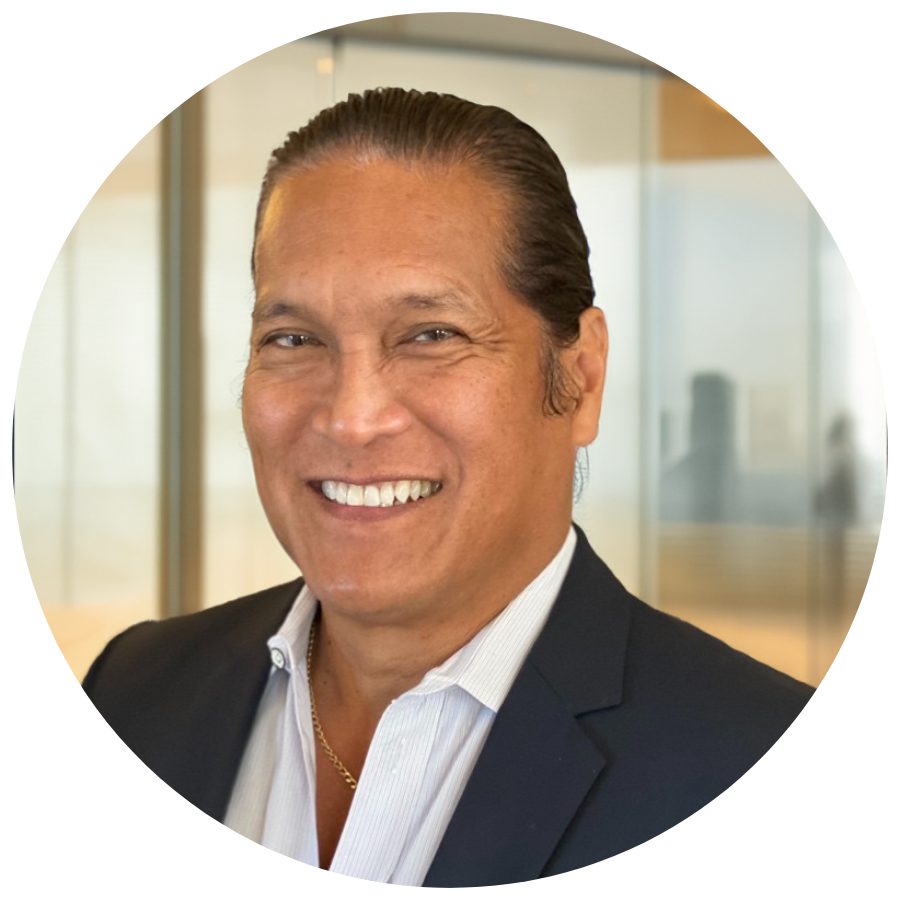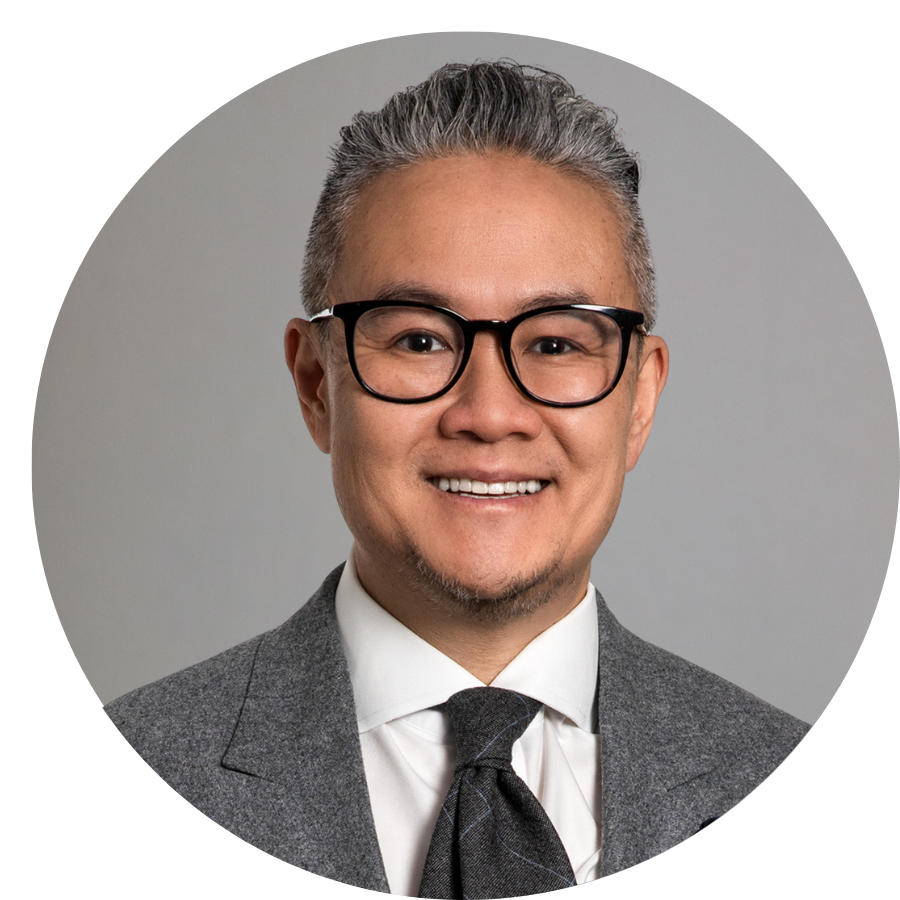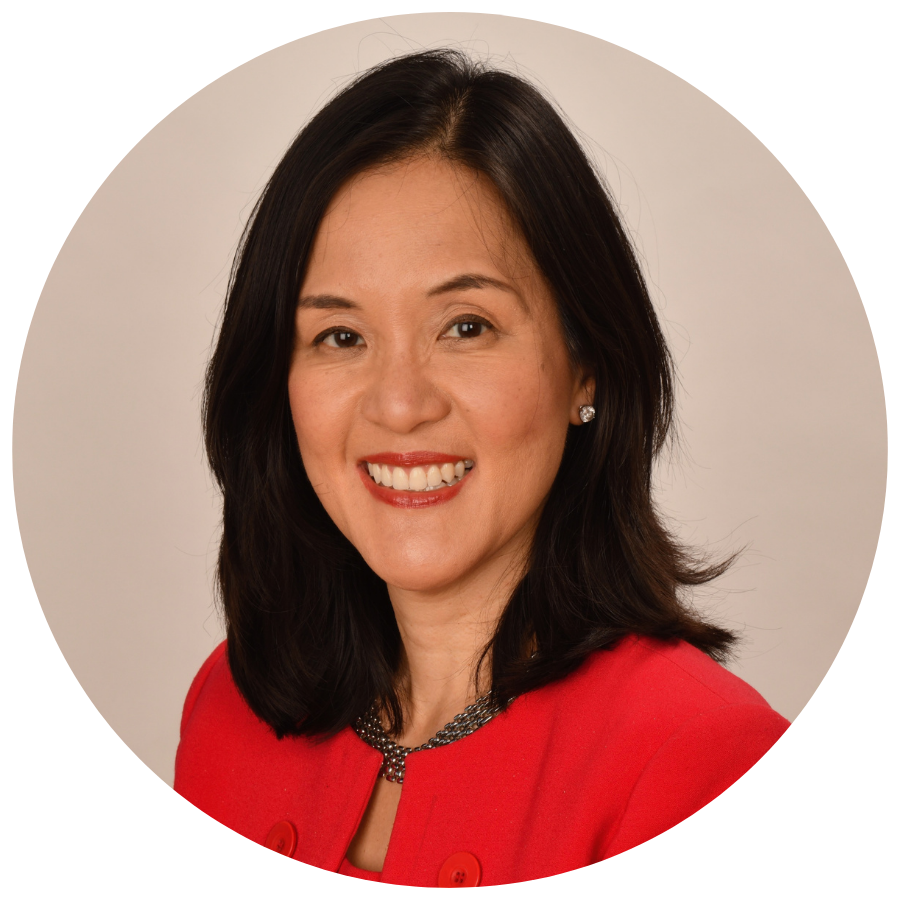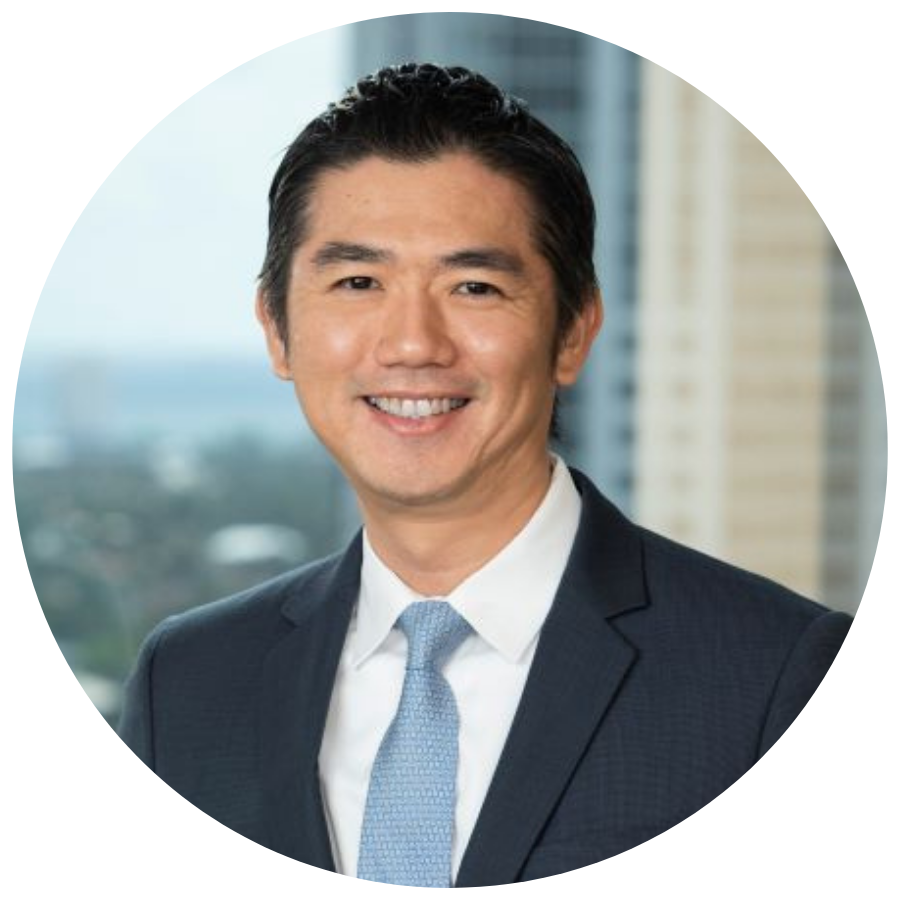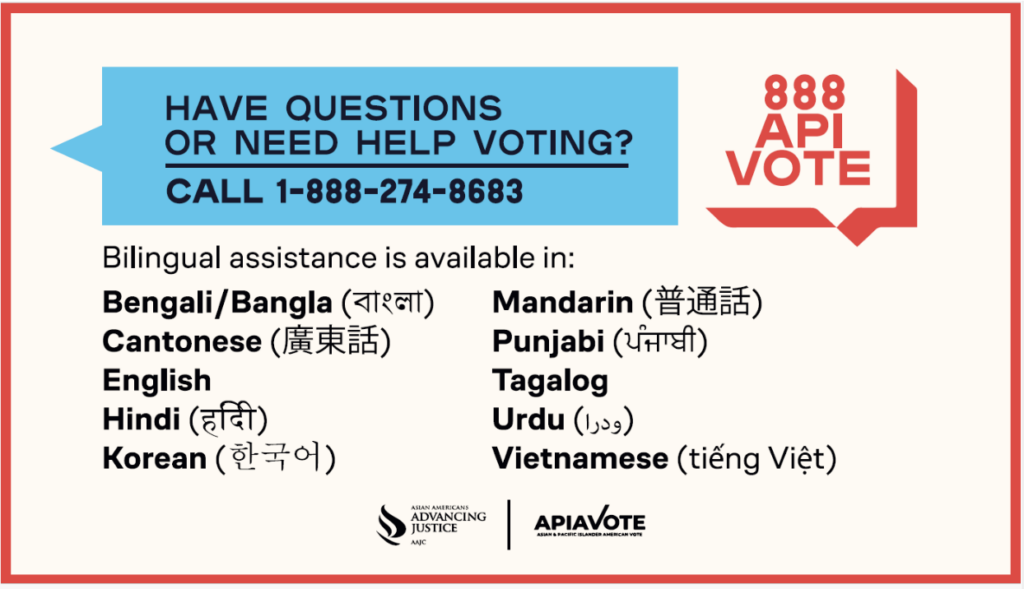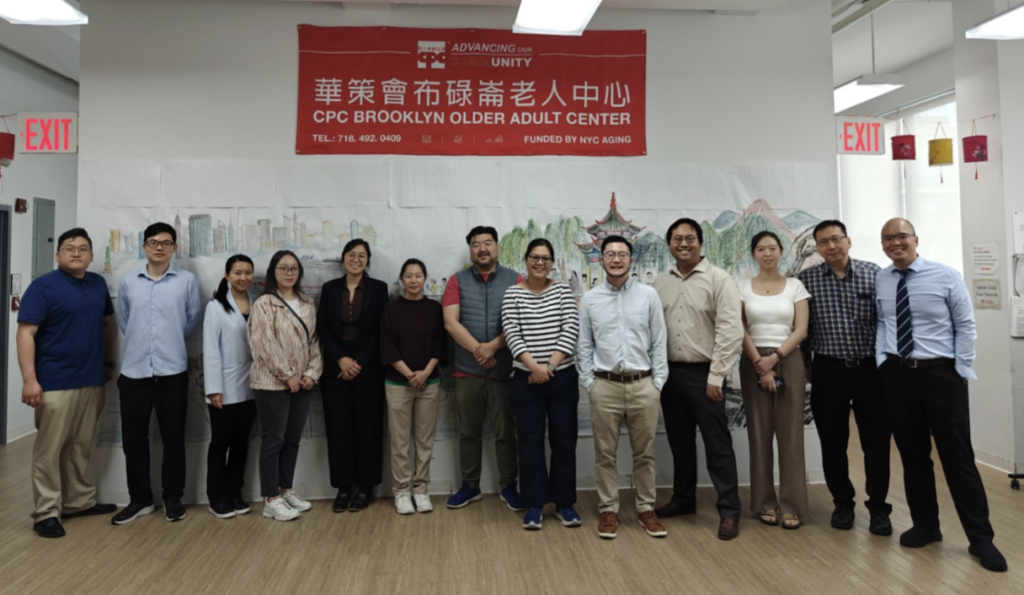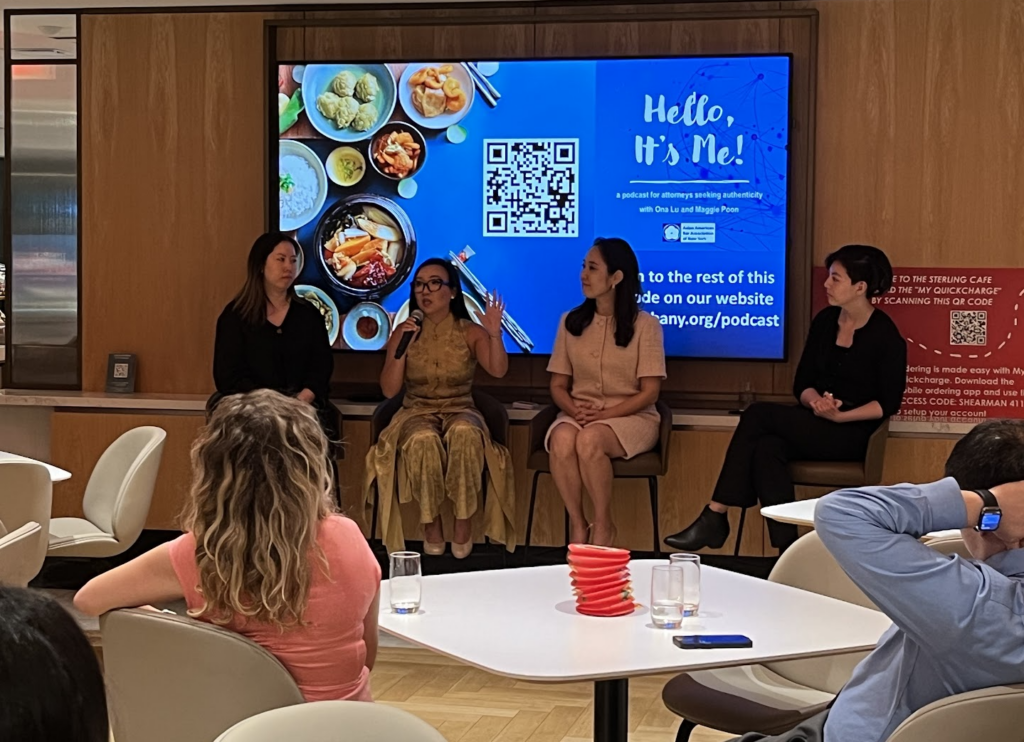
On September 17th, the Professional Development Committee (PDC) Vice Chairs Maggie Poon and Ona Lu hosted the official launch of their “Hello, It’s Me!” Wellness Podcast.
Attendees gathered at the Sterling Cafe located on the 3rd floor of the offices of A&O Shearman, some dressed in traditional Mid-Autumn Festival attire, and everyone enjoyed light bites and drinks while networking with one another.
PDC Co-Chair Nandar Win Kerr started the program with opening remarks, thanking event host Ashley Shan, Co-Vice President of Programs and Operations and Associate at A&O Shearman, for providing the lovely venue. Nandar then gave the floor to Beatrice Leong and Celina Lee, who introduced themselves.
Beatrice, a former legal intern at the Attorney General’s Office for the State of Connecticut, began her legal career with aspirations to become a prosecutor. However, her path took a turn when she shifted to practicing divorce and family law. Celina, on the other hand, started as an investment banker and corporate lawyer but now dedicates her life to career coaching, helping others find purpose and fulfillment in their professional lives. Their diverse career trajectories set the stage for a thoughtful discussion about life’s unexpected twists and the importance of mental health.
After these brief introductions, Ona Lu, Products Counsel at Uber, and Maggie Poon, Contracts Counsel at Equinox, hosts of the wellness podcast, introduced themselves and treated the attendees to a short 20-minute video excerpt of the second episode in the podcast series, featuring Beatrice Leong.
The conversation started with rapid-fire questions to help the audience get to know Beatrice better, followed by a deeper dive into her experiences. Beatrice opened up about her personal heartbreak. After discovering that her husband had been unfaithful, following a relationship that spanned thirteen years, she described the experience as her “villain origin story.” Up until then, Beatrice had wanted to pursue a career in prosecution, even landing a role at the District Attorney’s Office. However, the pain of betrayal and heartbreak eventually led her to shift her career focus from prosecution to divorce law. Rather than being consumed by her heartbreak, she channeled it into her professional passion for helping others navigate the difficult and emotional process of divorce.
“Why divorce law?” she is often asked. Her answer is simple yet profound: “I like to help people going through what I have gone through; I want to feel like I am doing something important.” For Beatrice, the most rewarding part of her work is helping her clients see light at the end of the tunnel, much like she did during her own personal journey. To hear the full podcast, go here.
Celina had a different journey of mental health counseling and recovery. She recounted how she had dedicated her whole life to “getting good grades” even if it meant skipping parties and “securing a good job” – even if it meant a job that she wasn’t passionate about. In retrospect, she had been motivated by fear: fear of failure and of not making her parents and peers proud.
She expressed regret that although she had achieved prestige and a well-paying job, she did not quite feel fulfilled. “I had won the race, but I felt like I was in the wrong race.”
She entered a dark period in her life where she felt lost in her career and didn’t know what to do. Luckily, after receiving mental health coaching, she developed a support network.
She started to focus on herself and not on what other people wanted her to do. She started her “Live Your Dream” podcast where she regularly reflects on her former life and how she found fulfillment. To hear the full podcast of Celina’s interview on “Hello, It’s Me,” go here.
Both Beatrice and Celina agreed that everyone needs a support network; too many Asians don’t seek support and don’t prioritize their mental health. Those brought up in Asian cultures were never taught the importance of mental health. Lack of support can really weigh one’s mental health down and ultimately makes it harder to focus on work and overcome challenges.
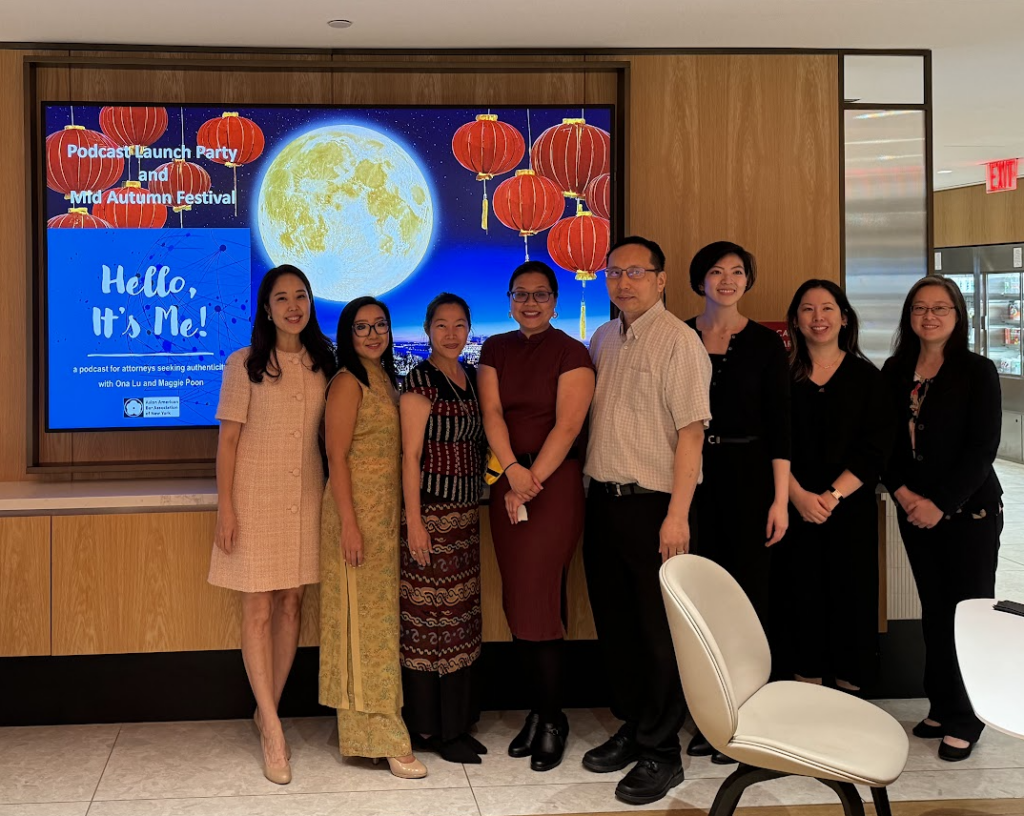
The event wrapped up with closing remarks by Yang Chen, AABANY Executive Director. He spoke about the benefits of joining AABANY as a member and encouraged attendees to register for upcoming events such as the October bi-monthly pro bono clinic in Queens on October 2, and the AABANY Fall Conference on October 12.
Special thanks to Professional Development Committee Co-chairs Nandar Win Kerr and May Wong for organizing this insightful event.
To learn more about the Professional Development Committee please visit their page at https://www.aabany.org/page/118. “Hello, it’s Me” podcast can be found here.



